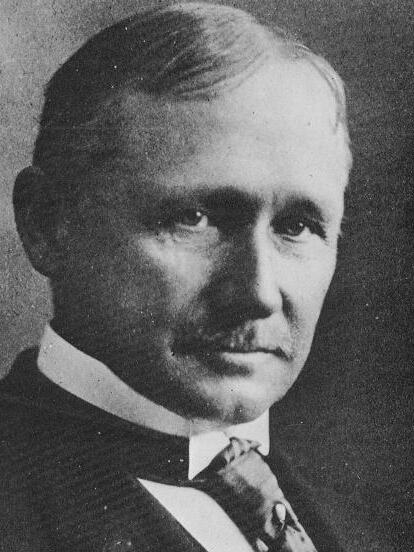Frederick Winslow Taylor: Difference between revisions
Jump to navigation
Jump to search
Amwelladmin (talk | contribs) Created page with "{{a|devil|{{image|Frederick Winslow Taylor|jpg|}}Frederick Winslow Taylor (March 20, 1856 - March 21, 1915) was an American mechanical engineer known for his methods to improv..." |
Amwelladmin (talk | contribs) No edit summary |
||
| (4 intermediate revisions by the same user not shown) | |||
| Line 1: | Line 1: | ||
{{a|devil|{{image|Frederick Winslow Taylor|jpg|}}Frederick Winslow Taylor (March 20, 1856 - March 21, 1915) was an American mechanical engineer known for his methods to improve industrial efficiency, and regarded as one of the first management consultants.<ref>Not a good thing.</ref> | {{a|devil|{{image|Frederick Winslow Taylor|jpg|}}}}Frederick Winslow Taylor (March 20, 1856 - March 21, 1915) was an American mechanical engineer known for his methods to improve industrial efficiency, and regarded as one of the first management consultants.<ref>Not a good thing.</ref> | ||
Taylor’s efficiency techniques are summarised in his 1909 book ''The Principles of Scientific Management'' which Fellows of the Academy of Management voted “most influential management book of the twentieth century”.<ref>Also, not a good thing.</ref> | Taylor’s efficiency techniques — known officially as [[scientific management]] and unofficially as [[Frederick Winslow Taylor|Taylorism]] are summarised in his 1909 book ''The Principles of Scientific Management'' which Fellows of the Academy of Management voted “most influential management book of the twentieth century”.<ref>Also, not a good thing.</ref> | ||
{{sa}} | {{sa}} | ||
*[[Averagarianism]] | *[[Averagarianism]] | ||
{{ref}} | |||
Latest revision as of 09:00, 17 September 2023
|
Frederick Winslow Taylor (March 20, 1856 - March 21, 1915) was an American mechanical engineer known for his methods to improve industrial efficiency, and regarded as one of the first management consultants.[1]
Taylor’s efficiency techniques — known officially as scientific management and unofficially as Taylorism are summarised in his 1909 book The Principles of Scientific Management which Fellows of the Academy of Management voted “most influential management book of the twentieth century”.[2]
